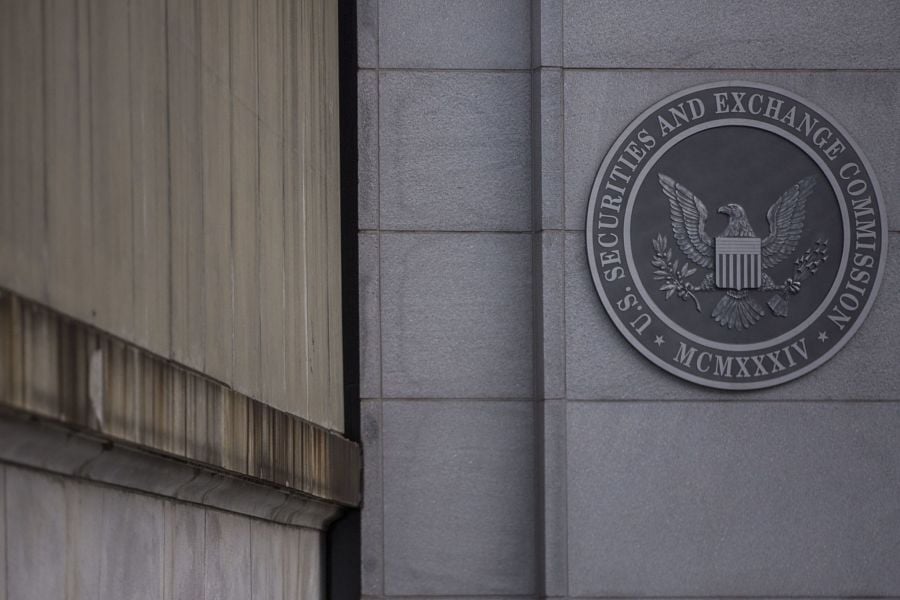

An SEC proposal that would force investment advisers to do more to oversee outsourcing immediately drew criticism for the regulatory burden it would foist on small firms.
But some advisers welcome the Securities and Exchange Commission’s effort to impose minimum due diligence and monitoring requirements for those who turn to third parties for functions such as portfolio management, indexing, trading services and software.
“Scrutiny should not be something that scares advisers away, especially if they’re fiduciaries,” said Tyler Whitehouse, director of financial planning at RMR Wealth.
His firm uses about 30 model portfolios for about $800 million of its assets under management, Whitehouse said. The strategy, though, is customized for particular investors based on their investing goals.
“I think it’s easier to justify the model if you provide planning prior to and during the engagement,” he said. “It goes back to know your client. If you have a robust compliance department within your RIA, and they can monitor and review this stuff, you’re on third base” in terms of meeting a higher outsourcing standard.
Financial technology firms deserve stronger vetting, said Leibel Sternbach, chief technology officer at Fusion Capital Management. He has seen many examples of problems that arise — including miscalculated fees and botched transactions — when functions such as trading, billing, reporting and record keeping are handed off to a third-party firm.
“FinTech has been the wild west and for too long firms have been able to sidestep responsibility by saying that they are tech companies and not investment advisors,” Sternbach wrote in an email. “I think this rule, if it passes will finally shine a light on the dark corners of our industry that are hurting both advisors and clients. It’s time for tech and service providers to be held to the same standards as their clients and share responsibility for their actions.”
The SEC voted 3-2 in favor of the proposal, which is open for a 60-day comment period. Democrats on the commission said they're concerned about potential investor harm if advisers fail to meet fiduciary and other obligations when they outsource services.
Critics pointed out that under the potential rule, a “covered function” is broadly defined as one that's necessary to providing advisory services and could materially impact clients if it is performed poorly.
The rule would be “subject to wide interpretation and inconsistent application by advisers,” Abby Bertumen, counsel at Morgan Lewis, said in a statement.
Almost any kind of outsourcing would fall under the rule, said Republican SEC Commissioner Mark Uyeda.
“What is a chief compliance officer to do? An already burdensome regulatory regime is made ever more burdensome when the functions that trigger the rule’s requirements are not clearly spelled out,” Uyeda said during Wednesday’s SEC open meeting, where he voted against releasing the measure for public comment.
“The economic analysis fails to account for the substantial burden that would likely be placed on small advisers,” he added.
The specific steps that advisers would have to follow to show that outsourcing is appropriate overlap with their existing fiduciary duty, Bertumen said.
“Such a prescriptive requirement … seems redundant and not necessarily appropriate for the unique facts and circumstances of any particular outsourcing arrangement,” she said.

The move to charge data aggregators fees totaling hundreds of millions of dollars threatens to upend business models across the industry.

The latest snapshot report reveals large firms overwhelmingly account for branches and registrants as trend of net exits from FINRA continues.

Siding with the primary contact in a marriage might make sense at first, but having both parties' interests at heart could open a better way forward.

With more than $13 billion in assets, American Portfolios Advisors closed last October.

Robert D. Kendall brings decades of experience, including roles at DWS Americas and a former investment unit within Morgan Stanley, as he steps into a global leadership position.
Orion's Tom Wilson on delivering coordinated, high-touch service in a world where returns alone no longer set you apart.
Barely a decade old, registered index-linked annuities have quickly surged in popularity, thanks to their unique blend of protection and growth potential—an appealing option for investors looking to chart a steadier course through today's choppy market waters, says Myles Lambert, Brighthouse Financial.
